QuestionHi. I had 5 large goldfish and one larger koi all of which I've had for a few years since they were babies. For the last 5 days I've found one goldfish dead each day, and now only have the koi left and he looks healthy. One of the dead fish's mouth was black, they all seemed to be losing scales, and were all slimey. Today I had the water tested and was told there was a very high ammonia level, which they thought was what killed them. I'm almost fanatical about cleaning the pump and filters, and do about an 80% water change almost monthly. (I found the first dead fish the day after I did all of that.) So, how can the ammonia level be so high? And why is the koi unaffected? I thought I was giving my pond fish the best of care, but it now seems my neglect is what killed them. I feel so guilty! How can I prevent it from happening to any new fish I might get?
I'd appreciate any advice you can give me.
Thank-you. Melody
AnswerI'm so sorry that you've lost your fish. I know how you feel. I lost two goldfish today, including my only fantail in the pond. This is rare for me and probably due to the extreme heat.
How big is your pond? How big are the fish? I'm guessing they may be crowded since you have high ammonia. The scale loss and slime could be indicative of most anything. How high was the ammonia? High ammonia could certainly have killed the fish if it was indeed high. A large water change can be very stressful. I don't suggest changing more than 50% unless there's an emergency (like super high ammonia). Do you add anything to the water like dechlorinator or salt? If you have city water and don't add dechlorinator, that can be deadly. Cleaning filter materials too well can remove good bacteria and cause an ammonia spike. Also, if things were stirred up during a cleaning, that can release hydrogen sulfide and/or methane which are toxic at higher doses. Add to that that tap water (well or city) is low in oxygen until aerated, and a large water change may be harmful. The ammonia after a large water change could still be high if there's ammonia in the tap water (check it), or the pond doesn't have a healthy population of nitrifying bacteria. It may just be a fluke that the koi is not affected but young, old, and sick fish are the most apt to be harmed by high ammonia. My page on water chemistry is at http://www.fishpondinfo.com/chem.htm
I hope your koi does okay. I would do a 40% water change unless you've done a change in the last week, add dechlorinator and pond salt and aerate the water well. Adding some good bacteria is probably also a good idea. Microbe-Lift now makes biological filter material already seeded with good bacteria. Good luck!
Robyn

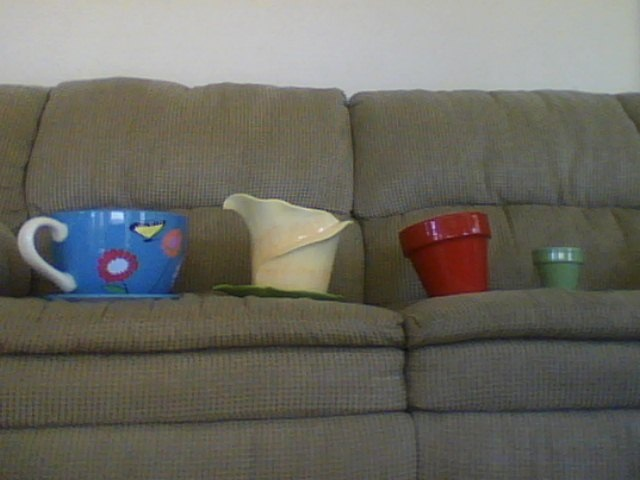 Building a water feature
Question
4 Pots
My mom bought 4 flower pots and
Building a water feature
Question
4 Pots
My mom bought 4 flower pots and
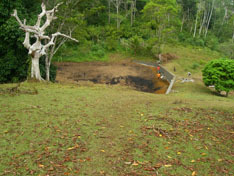 Cement to Clay..?
QuestionCement Dam
QUESTION: My question is in r
Cement to Clay..?
QuestionCement Dam
QUESTION: My question is in r
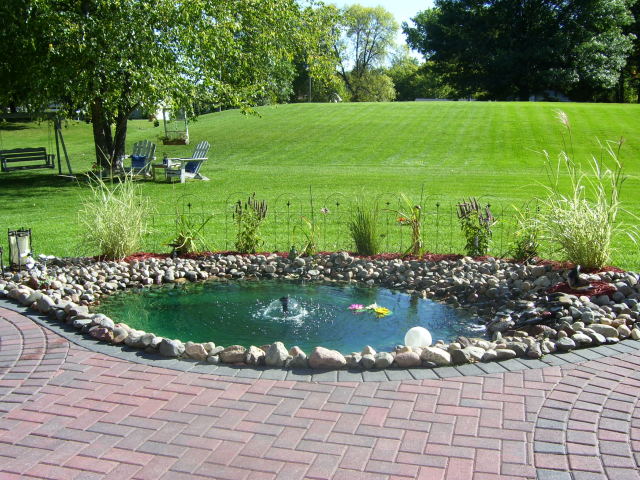 water pooling under liner/no hole in liner
QuestionQUESTION: I recently put in a small pond off of
water pooling under liner/no hole in liner
QuestionQUESTION: I recently put in a small pond off of
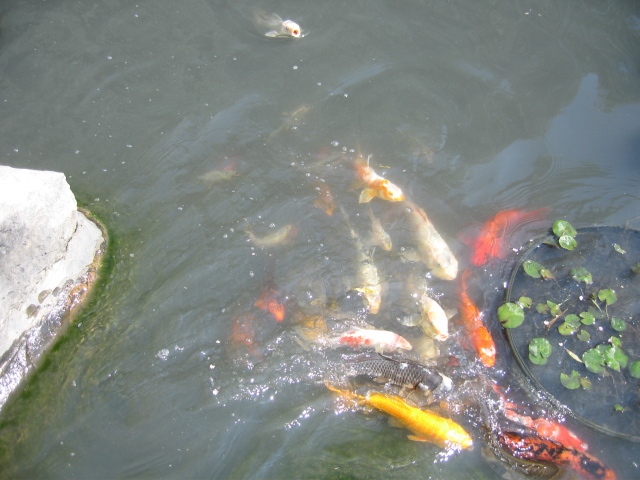 BLACK POND
Question
POND
I RECENTLY TURNED MY ULTRAVIOLET LIGHTS B
BLACK POND
Question
POND
I RECENTLY TURNED MY ULTRAVIOLET LIGHTS B
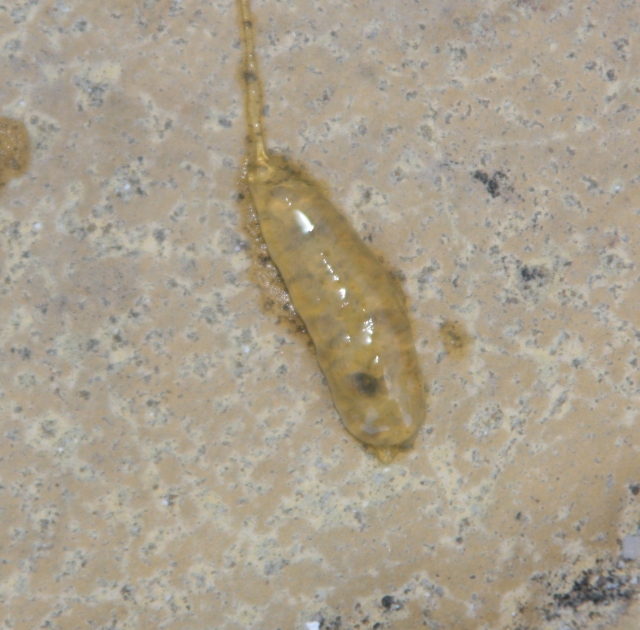 worm type things
QuestionQUESTION: Hi.I have a pond with around 10 fish
worm type things
QuestionQUESTION: Hi.I have a pond with around 10 fish